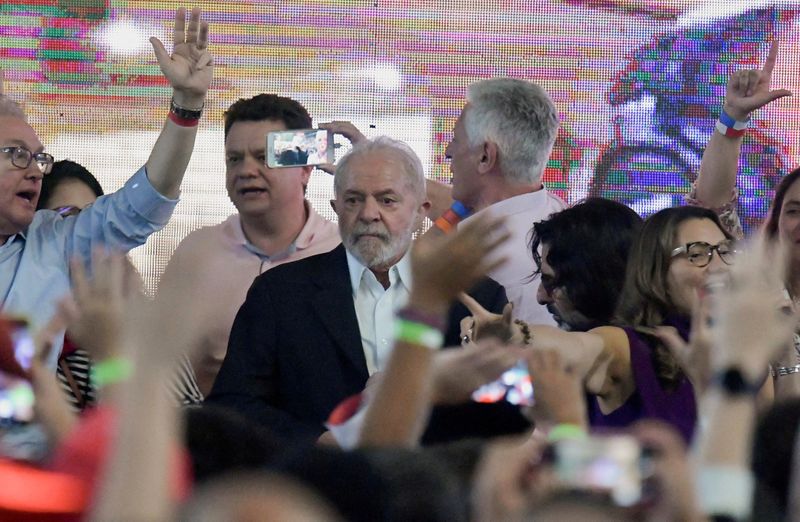By Lisandra Paraguassu
BRASILIA (Reuters) – Brazili’s former president Luiz Inacio Lula da Silva, who is running for office again in elections in October, and his Workers’ Party (PT) want public-private partnerships in infrastructure to focus on sustainability with development bank BNDES providing loan guarantees should he win.
Fernando Haddad, a former Sao Paulo mayor who will run for state governor, said the BNDES would also directly finance part of investments in projects for sewage management, public health, education and urban mobility.
That marks a shift from other PT administrations, when the BNDES was used to capitalize on private companies and finance big projects under the Growth Acceleration Program (PAC), including highways and hydroelectric plants at the center of environmental controversies.
The idea is to accelerate investments that the federal government cannot afford to fund alone, thus boosting the economy and job creation, Haddad told Reuters in an interview.
“It’s not a silver bullet, but it facilitates investments. Focus would be on having quick investments centered on a green economy,” he said.
“These are green PPPs, with an environmental impact,” he said, adding that partnerships with the private sector would ensure greater efficiency.
In addition to the role of loan guarantor, BNDES could also finance around 30% of the projects, according to a source involved in the discussions.
That would facilitate the rest of the project’s financing in the market, possibly at lower interest rates, the source said.
Between 2008 and 2015, the Brazilian Treasury transferred more than 500 billion reais ($100 billion) to the development bank, weakening public finances and squeezing commercial lenders out of capital markets. In recent years, the bank has pursued a policy of returning these loans to the Treasury.
Former President Michel Temer, who held office from 2016 to 2019, also changed the rate for BNDES financing projects to bring it closer to market conditions, reducing earmarked credit in the economy.
($1 = 4.9680 reais)
(Reporting by Lisandra Paraguassu; Writing by Marcela Ayres; Editing by Angus MacSwan)
